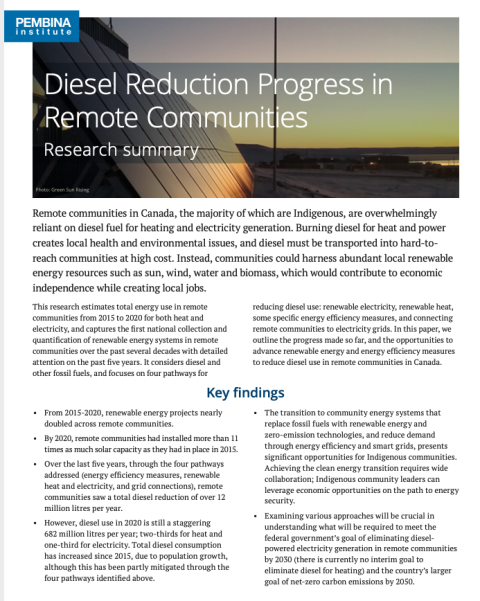Remote communities in Canada are overwhelmingly reliant on diesel fuel for heating and electricity generation. Burning diesel for heat and power creates local health and environmental issues, and must be transported into the community at high cost. Rather than depending on expensive shipments of diesel into their hard-to-reach communities, harnessing abundant local renewable energy resources such as sun, wind, water and biomass would contribute to economic independence while creating local jobs.
To help address this, the federal government, along with many provincial, territorial and municipal governments, has committed to support the reduction of diesel use in remote communities in an effort to increase energy security and local employment. Progress is being made on diesel reduction and the replacement of diesel-based energy systems with clean energy technologies and energy efficiency measures. However, there are few estimates of the cumulative diesel reduction impact of combined renewable electricity, renewable heat and energy efficiency measures over the past several years. The Pembina Institute has filled this gap by collecting and quantifying cumulative national diesel reduction progress from 2015-2020 (full methodology and assumptions are outlined in the technical report). In this paper, we outline the progress made so far, and the opportunities to advance renewable energy and energy efficiency measures to reduce diesel use in Indigenous remote communities in Canada.







